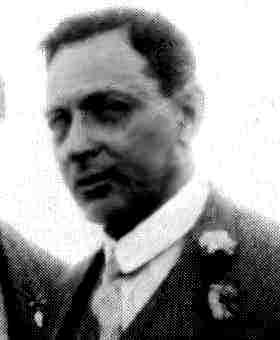Alfréd Haar
Born: 11 Oct 1885 in Budapest, Hungary
Died: 16 March 1933 in Szeged, Hungary

Haar worked in analysis studying orthogonal systems of functions, partial differential equations, Chebyshev approximations and linear inequalities.
In 1903, in his final year in school, Haar won first prize in the Eötvös contest in mathematics. Haar travelled to Germany in 1904 to study at Göttingen and there he studied under Hilbert's supervision, obtaining his doctorate in 1909.
Haar then taught at Göttingen until 1912 when he returned to Hungary and held chairs at the university in Kolozsvár (which is now Cluj in Romania), Budapest University and Szeged University. In fact after Word War I Kolozsvár was no longer in Hungary, so the University there had to move within Hungarian borders and it moved to Szeged, where there had previously been no university. Haar, together with Riesz, rapidly made a major mathematical centre from the new university.
Haar worked in analysis. His doctoral thesis studied orthogonal systems of functions. Later he went on to study partial differential equations. He also wrote on Chebyshev approximations and linear inequalities. Between 1917 and 1919 he worked on the variational calculus.
Haar is best remembered for his work on analysis on groups. In 1932 he introduced a measure on groups, now called the Haar measure, which allows an analogue of Lebesgue integrals to be defined on locally compact topological groups. It was used by von Neumann, by Pontryagin in 1934 and Weil in 1940 to set up an abstract theory of commutative harmonic analysis.
References:
- Dictionary of Scientific Biography
- B S Nagy, Alfréd Haar : Gesammelte Arbeiten (Budapest, 1959).
Source: http://www-groups.dcs.st-and.ac.uk/~history/